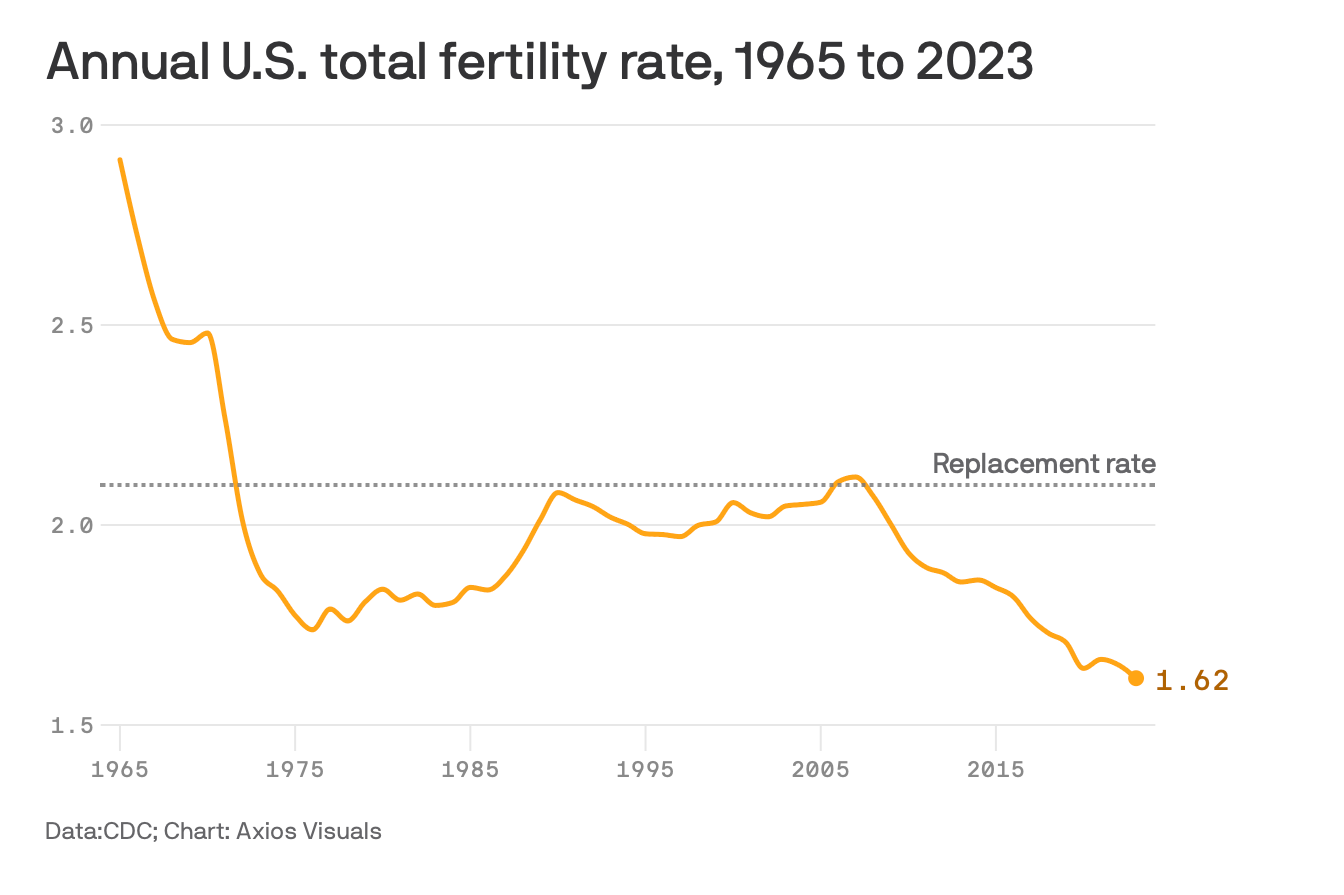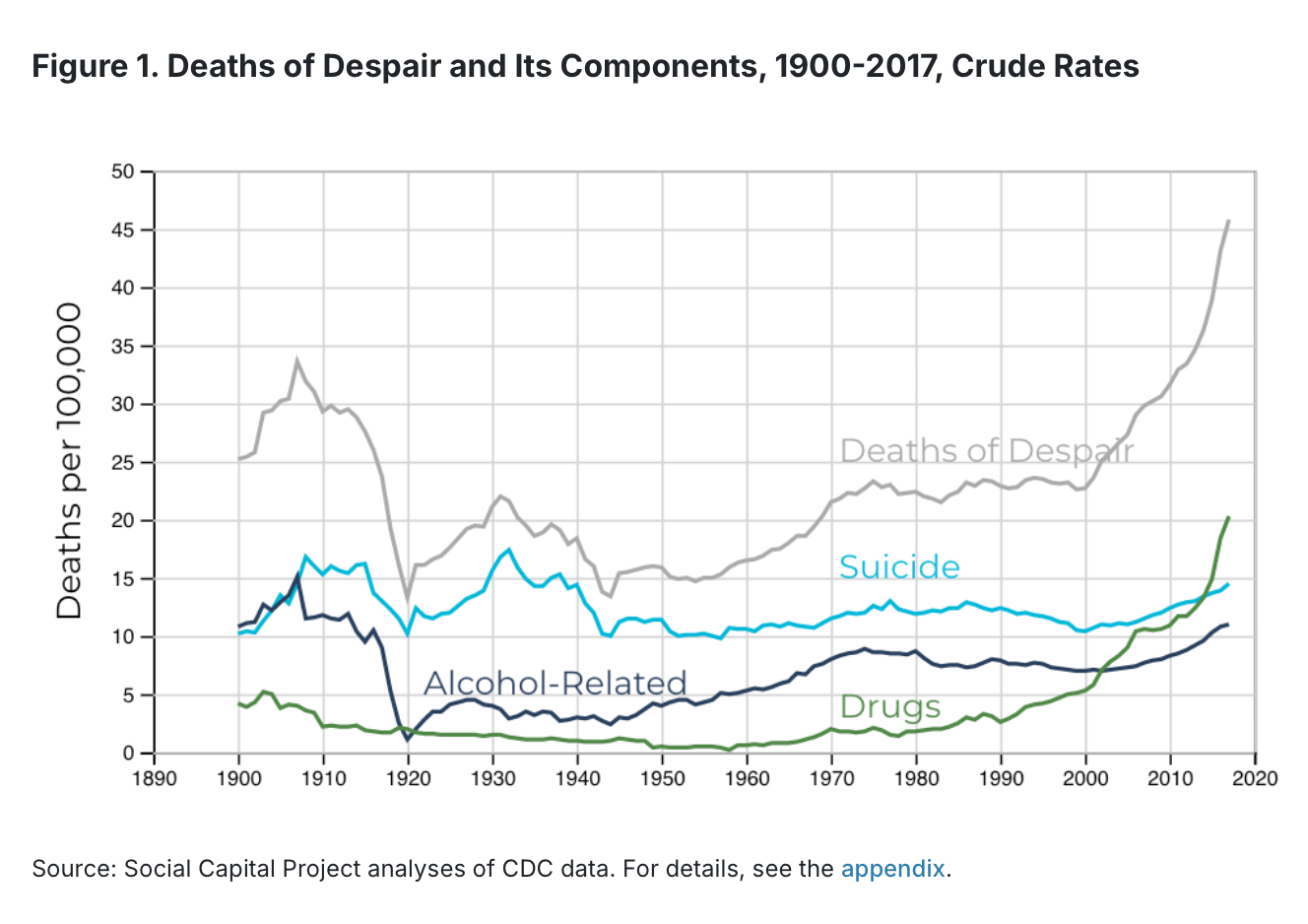The More Things Change
What are we to make of claims that we are part of a civilization in collapse?

Alan Jacobs recently wrote about a post by Nathan Pinoski in which Pinoski starts with the sentence, “Twentieth-century civilization has collapsed.” This assertion may seem hyperbolic, but it has gained traction among a certain class of sociocultural critics. Professor Jacobs rebuts the assertion with a list of things that haven’t changed since the last century.
- banking systems
- car manufacturers
- hostilities in the Middle East
- trends in university English departments
- rock bands touring
- provocateurs provoking
Sure, those items are mostly fairly static (although you could argue that tensions in the Middle East have gotten much worse). However, they aren’t exactly the criteria I would use to assess civilizational collapse.
If I were to evaluate the health of a civilization, I would look at measures like birth rates. I think dramatically declining birth rates tell a more important story about whether a particular civilization will last another generation or three than whether you can buy the same brand of pickup truck from year to year.

The fertility story is not a good one. The U.S. may be slouching towards the type of future with which Japan and Korea and European countries are already grappling. That future is one of difficulties with elder care, schools closing in less populous areas, and economic transformation.
When I first saw the linked Axios article, I showed my wife the graph above. She thought of all sorts of economic reasons why people wouldn’t have as many kids. She studies a significant amount of demographic data covering the disadvantaged for her job, so it makes sense that she might see things through that lens. As Christine Emba points out in this article for the Atlantic, though, financial concerns do not represent a very large piece of the puzzle. Economic incentives to procreate haven’t moved the needle on birth rates in most countries that have tried them.
Emba remarks on the interviews economist Catherine Ruth Pukaluk did with 55 women from across the U.S. who have five or more children.
The mothers whom Pakaluk profiles approach childbearing with far less ambiguity. As one told her, “I just have to trust that there’s a purpose to all of it.” Her interviewees’ lives are scaffolded by a sincere belief in providence, in which their religious faith often plays a major role.
When my wife came across that passage after I recommended the article to her, she said she couldn’t imagine thinking that way. Exactly. Therein may lie the problem. Many people in this society are like her, and they can’t fathom that kind of mindset.
In addition to fertility, if I were examining the likelihood of civilizational collapse, I might look at the rising rates of deaths of despair.1

The data is startling in this area and would seem hard to ignore (though plenty of otherwise well-informed folks appear to have adapted to doing just that). These figures would likely be better indictators of decline than whether your bank uses COBOL in the 21st century.
Professor Jacobs is a reasonable fellow. His point that decrying civilizational collapse is a kind of not-so-secret handshake among cultural conservatives has merit. I can’t help but feel that he is willfully ignoring the obvious, though. I don’t personally believe our civilization has collapsed, but you would be unwise not to heed the warning signs just because The Rolling Stones are still on the road as octogenarians.
- Deaths by suicide, drug and alcohol poisoning, and alcoholic liver disease and cirrhosis. ↩︎



